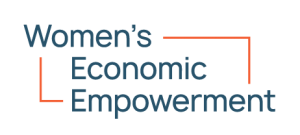Tracking funding is vital for catalysing women’s economic empowerment
 New initiative to build evidence for better investments to WEE
New initiative to build evidence for better investments to WEE
It is now well established that investing in women’s economic empowerment has a catalytic effect in reducing poverty for all people and achieving gender equality. Gains made over the last years, however, have been severely challenged by the impact of COVID-19. The UN Women report on gender equality and Covid-19 pointed to the economic fallout and the variety of ways in which the pandemic has disproportionately impacted women. An example of this is the fact that women are losing their livelihoods faster as they are more exposed to hard-hit economic sectors. The report predicts that by 2021, 47 million women worldwide will have been pushed into poverty, widening the gender poverty gap.
Why investment in women’s economic empowerment is so critical
Women’s economic empowerment (WEE) is key to the realisation of women’s rights and their full participation in society and the world of work, helping both to reduce poverty and increase inclusive growth. However, WEE has not just stagnated over the past year but is in reverse. We welcome recent and much-needed commitments, such as those from the Generation Equality Forum’s Economic Justice and Rights Action Coalition, to implement gender-responsive budget reforms and stimulus packages as well as calls for donors to focus efforts on measures that provide economic security for women and girls.
We also recognise the urgent need for investments to be effective by flowing to projects in critical sectors, plugging gaps and supporting transformative change. One of the barriers to effective investments is the limited understanding of who is funding what and with what results. As recommended by experts at the Center for Global Development in a recent paper on WEE in the Covid-19 context, donors should commit to producing good gender data and “document the successes and challenges they are facing in ensuring that their recovery policies and programs benefit women and girls”. This information would enable gender advocates, NGOs, and other stakeholders to better engage with donors on how best to allocate their funds and address funding gaps.
A new initiative to track funding for women’s economic empowerment
To help efforts to overcome this barrier, we are launching “Women’s Economic Empowerment: building evidence for better investments”. This project will track funding to WEE as well as women’s empowerment collectives (WECs) and women’s financial inclusion (WFI), which are seen as accelerators of change to WEE. We will also analyse Covid-19 funding and assess the gender intentionality of international donors’ funding approaches. Our project will use a case study approach focusing on Kenya, Nigeria, Ethiopia, Uganda, Pakistan and Bangladesh. We are collaborating with the International Center for Research on Women on this project.
We will build on previous efforts by OECD DAC GenderNet, Donor Tracker, our own Gender Financing project, and others to track funding. For example, recently published recommendations from our Gender Financing project highlighted that there are still a number of challenges to understanding, improving, and sharing gender data, especially at the granular level. Based on this, we will develop an enhanced methodology that takes an intersectional feminist approach and encompasses a broader range of factors that influence the economic lives of women and girls, including macroeconomic interventions, rights-based support, and access to resources.
We will consult widely with WEE subject matter experts and advocates, feminist economists and policymakers on our approach through our Global Advisory Committee as well as our Advisory Committees for each country. We will use our findings to produce robust data, smart recommendations and tools to track funding to WEE and WFI.
What’s our aim?
We will track who funds what, where the funding goes, what results are known, and what gaps exist. We will use our findings to advocate for more and better funding to WEE at the country and global level.
Our aim is to:
- Help coordination efforts between gender advocates, donors, governments and other national and international actors
- Use our findings to advocate for donors to commit to improving investments in WEE, WFI and WECs
- Ensure that investments in WEE, WFI and WECs are transparent, accountable, and effective
Given that Covid-19 has further exacerbated economic inequalities particularly for women and girls, it is critical that donors invest in women’s economic empowerment and that these investments are driven by data and evidence.

